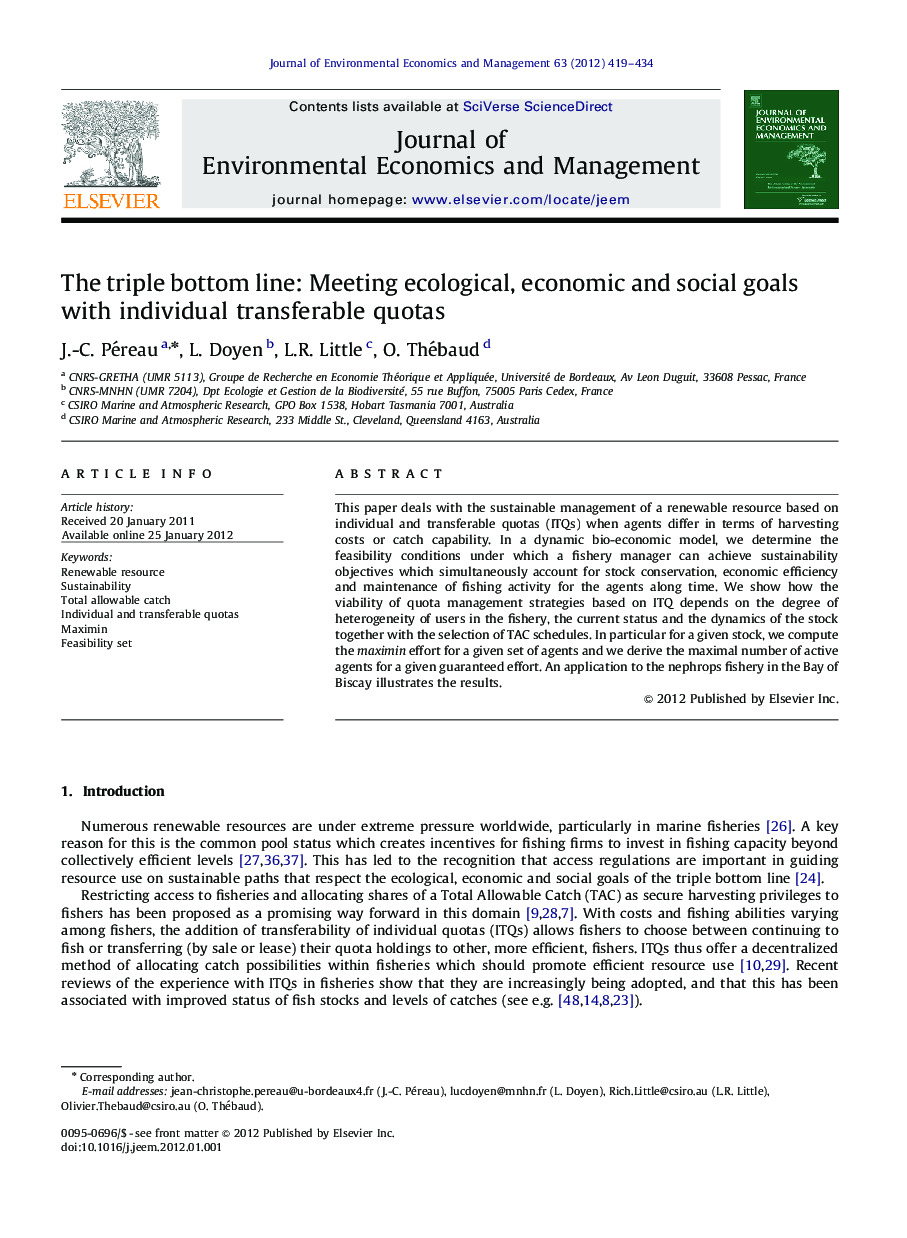| Article ID | Journal | Published Year | Pages | File Type |
|---|---|---|---|---|
| 959234 | Journal of Environmental Economics and Management | 2012 | 16 Pages |
This paper deals with the sustainable management of a renewable resource based on individual and transferable quotas (ITQs) when agents differ in terms of harvesting costs or catch capability. In a dynamic bio-economic model, we determine the feasibility conditions under which a fishery manager can achieve sustainability objectives which simultaneously account for stock conservation, economic efficiency and maintenance of fishing activity for the agents along time. We show how the viability of quota management strategies based on ITQ depends on the degree of heterogeneity of users in the fishery, the current status and the dynamics of the stock together with the selection of TAC schedules. In particular for a given stock, we compute the maximin effort for a given set of agents and we derive the maximal number of active agents for a given guaranteed effort. An application to the nephrops fishery in the Bay of Biscay illustrates the results.
